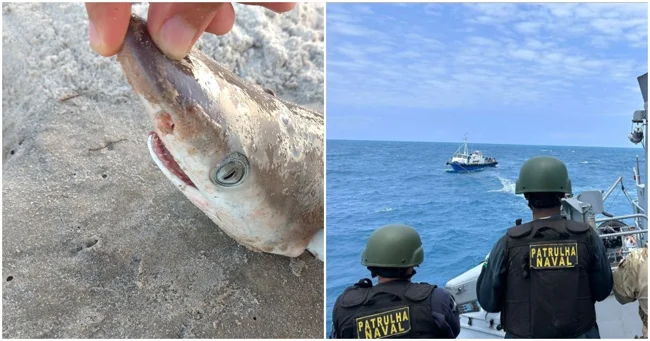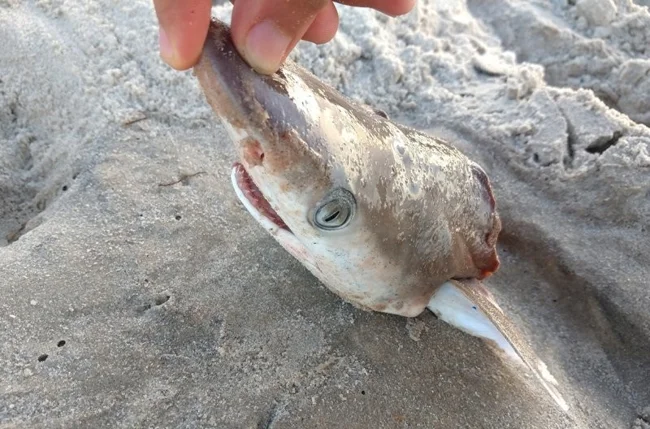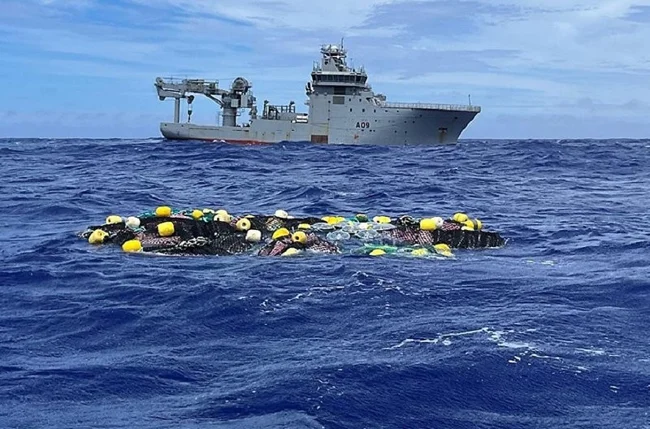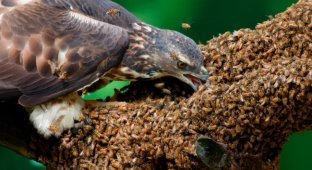They became drug addicts not of their own free will, but all thanks to the active work of illegal drug laboratories. 
It turns out that drug sharks are a serious problem in Brazil. They even made a documentary about this in an attempt to attract public attention. It’s called “Cocaine Sharks”.
Tracy Fanara, a science communicator with the National Oceanic and Atmospheric Administration (NOAA), spoke last year about the need to address the impact of drugs and other pollutants on wildlife.
The fact is that illegal drug laboratories pour their waste into the sewer, from where the cocaine ends up in rivers, through which it is discharged into the ocean. Bonus, smugglers caught by border agents usually dump numerous packages of drugs into the waters of the Gulf of Mexico.

One of the cocaine sharks.
It was there, not far from Rio de Janeiro, that drug-addicted sharks started appearing. The scientists bought 13 longnose sharks from small fishing boats that hunt this species and others. After autopsying the sharks in the laboratory, the team tested muscle and liver tissue. All samples were positive, and concentrations were 100 times higher than previously reported for other aquatic creatures.

Floating bags of cocaine could be a source of drug contamination for sharks.
“This shows the growing danger of cocaine contamination,” says Anna Capaldo, an endocrinologist and environmental pollution expert at the Friedrich II University of Naples, who was not involved in the study.
All females in the study were pregnant, although the effects of cocaine exposure on the fetus are unknown. It is also still unclear whether the drug affects the behavior of sharks. Moreover, sharks are often eaten by local residents, and it is not known how consumption of such fish affects humans.






























